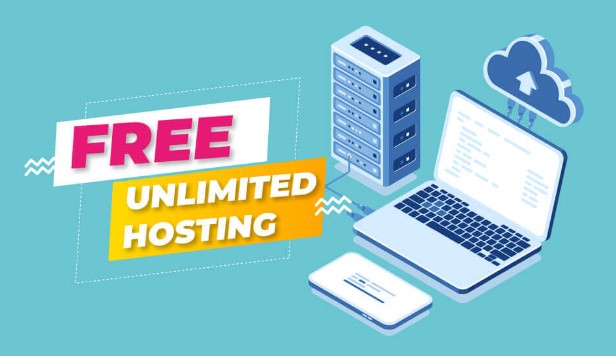In the digital era, having an online presence is imperative for businesses and individuals alike. However, the cost of website hosting can often be a barrier, especially for those just starting. Enter free website hosting – an attractive option that promises to get your website up and running without breaking the bank. But is it truly worth it? Let’s delve deeper into the world of free website hosting to find out.
What is Free Website Hosting

Free website hosting is a service provided by hosting companies that allows individuals or businesses to host their websites on servers without any upfront cost. Essentially, it provides a platform for your website to exist on the internet without requiring you to pay for server space or infrastructure.
In a nutshell, here’s how free website hosting works:
- Server Space: When you sign up for free website hosting, the hosting provider allocates a certain amount of server space for your website. This space is where all your website files, including HTML, CSS, images, and other media, are stored.
- Bandwidth: Bandwidth refers to the amount of data transferred between your website and its visitors. Free hosting plans typically come with limited bandwidth, meaning there’s a cap on the amount of traffic your website can handle. Once you exceed this limit, your website may become slow or inaccessible.
- Advertisements: To offset the costs of providing free hosting services, many providers display advertisements on websites hosted on their servers. These ads can appear in various forms, such as banners, pop-ups, or sponsored links. While this may be a small price to pay for free hosting, it can detract from the professionalism of your website.
- Domain: In most cases, free hosting plans offer subdomains or use the hosting provider’s domain name as part of your website’s URL. For example, if the hosting provider is “examplehosting.com,” your website’s URL might look like “yourwebsite.examplehosting.com.” Some providers may also offer the option to use your own domain name for an additional fee.
- Support and Features: Free hosting plans often come with limited support and fewer features compared to paid hosting plans. This means you may have access to fewer customization options, security features, or technical support resources.
While free website hosting can be a cost-effective solution for individuals or small businesses looking to establish an online presence, it’s essential to understand its limitations. These may include restricted resources, slower loading times, and the presence of advertisements. Additionally, as your website grows, you may find the need to upgrade to a paid hosting plan to accommodate increased traffic and access additional features and support.
Pros and Cons of Free Website Hosting
Exploring the advantages and disadvantages of free website hosting offers valuable insights into whether it’s the right choice for your online endeavors. Let’s delve into the pros and cons:
Pros
- Cost-Effectiveness: Perhaps the most compelling advantage of free website hosting is its cost-effectiveness. It provides an accessible entry point for individuals or small businesses looking to establish an online presence without the financial commitment associated with paid hosting plans.
- Easy Setup: Free hosting plans often come with user-friendly interfaces and straightforward setup processes. This makes it particularly appealing for beginners or those with limited technical expertise who want to get their websites up and running quickly and hassle-free.
- Exploratory Stage: For those testing the waters or experimenting with website creation, free hosting offers an ideal platform to explore different design elements, content strategies, and functionalities without incurring any financial risk.
Cons
- Limited Features: One of the most significant drawbacks of free website hosting is the limited features and resources it offers. Free plans typically come with restrictions on storage space, bandwidth, and support, which may not suffice for growing websites or those with high traffic volumes.
- Ads and Branding: To offset the costs of providing free hosting services, many providers display advertisements on websites hosted on their servers. These ads can detract from the professionalism of your site and may not align with your branding or aesthetic preferences.
- Performance Issues: Shared server environments, common in free hosting plans, can lead to performance issues such as slow loading times, downtime, or reduced reliability, especially during peak traffic periods. This can negatively impact user experience and overall website performance.
- Limited Customization: Free hosting plans often come with limited customization options, restricting your ability to tailor your website to your specific needs or preferences. This can be frustrating for users who require more flexibility or advanced features.
In summary, while free website hosting offers an attractive cost-saving solution for those just starting, it’s essential to weigh the pros and cons carefully. Consider your long-term goals, resource requirements, and the level of customization and support you need for your website before opting for free hosting. Ultimately, striking the right balance between affordability and functionality is key to making an informed decision.
Types of Free Website Hosting
Exploring the various types of free websites hosting sheds light on the different options available to individuals or businesses seeking to establish an online presence without breaking the bank. Here’s a breakdown of the most common types: credit payment processing, instant credit card processing approval, same day funding credit card processing, i need a credit card machine for my business, national processing merchant services, instant credit card processing, credit card processing for small business owners, same day credit card processing, credit card processing companies for small businesses, cc merchant services, business credit card processing companies, credit card merchants for small business, online credit card processing for small business, merchant services card processing, high volume credit card processing credit card merchant services for small business, high risk merchant account instant approva, web hosting top 10, web hosting sites, web hosting, webhosting, web host, webhost, free hosting, free host, free web hosting, hosting free, host free, web hosting free, free host web, hosting website, hosting meaning, host website, hosting for website, web hosting server, web hosting service, hosting services, qué es un hosting, hosting que es, hosting qué es, que hosting, que es hosting, host gratuitos, hosting gratuito, hosting gratuitos, gazduire web, gazduire website, hosting romanesc, hosting romania, hosting en el peru, hosting perú, hosting en peru
1. Shared Hosting
Shared hosting is a prevalent type of free websites hosting where multiple websites share resources on a single server. While this option is cost-effective and readily available, it can lead to performance issues, such as slower loading times or reduced reliability, especially during peak traffic periods. Additionally, the shared nature of the server may pose security risks, as vulnerabilities in one website can potentially affect others.
2. WordPress Hosting
Many hosting providers offer free hosting specifically optimized for WordPress websites. This type of hosting typically includes easy installation and management of WordPress sites, making it ideal for users who prefer the popular content management system. However, free WordPress hosting plans may come with limitations in terms of available themes, plugins, or customization options compared to paid alternatives.
3. Website Builders with Free Hosting
Some hosting providers offer free websites builders bundled with their hosting plans. These website builders often come with intuitive interfaces and customizable templates, allowing users to create professional-looking websites without the need for coding skills. While convenient, free website builders may have limitations in terms of design flexibility, available features, and branding options.
4. File Hosting Services
File hosting services, such as Dropbox or Google Drive, also offer a form of free websites hosting for static files. Users can upload HTML, CSS, JavaScript, and other web files to these platforms and share them with others via a unique URL. While suitable for simple static websites or file sharing purposes, file hosting services may lack the features and customization options required for more complex websites or dynamic content.
5. Free Subdomain Hosting
Some hosting providers offer free subdomain hosting, allowing users to create websites using a subdomain of the hosting provider’s domain name. For example, your website’s URL might look like “yourwebsite.examplehosting.com.” While this option eliminates the need for purchasing a domain name, it may come with limitations in terms of branding, SEO, and perceived professionalism.
In summary, the type of free website hosting that’s right for you depends on your specific needs, technical expertise, and long-term goals. Whether you opt for shared , WordPress, website builders, file services, or subdomain, it’s essential to carefully consider the features, limitations, and trade-offs associated with each option before making a decision.
